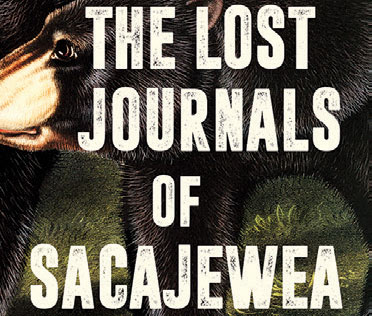
01 Jun Books: Reading the West
The Lost Journals of Sacajewea: A Novel (Milkweed Editions, $25) by Debra Magpie Earling upends the orthodox view of the Lewis and Clark saga, which paints Sacajewea as Toussaint Charbonneau’s wife and ignores the fact that he bought (or gambled for) her when she was a 12-year-old child. In this tough and unflinching novel, Earling pulls no punches as she reimagines the world of the late 1700s and early 1800s through the eyes and thoughts of this young Shoshone woman.
Earling’s Sacajewea is an apt companion to Louise White Elk, the protagonist of Earling’s first novel, Perma Red. The two young Indigenous women hail from opposite ends of the European invasion. Sacajewea navigates the perils of early contact with white America, while Louise struggles against the poverty of reservation life and the brutality of the boarding schools 140 years later. Both characters break loose from the stereotypic roles usually written in our histories and fictions to become heroes of their destinies.
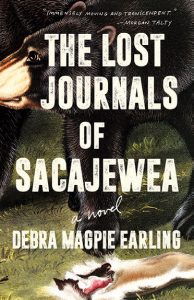
Because this novel is in Sacajewea’s voice, much of the language, rendered in Shoshoni without translation, is unknown — perhaps unknowable — to those of us of non-Indigenous heritage. At first, this created a struggle in reading this story. Then, I realized that might be the point: I am an outsider and may never fully know Sacajewea’s story. I, like every white person, like every man, like everyone who didn’t see their entire world torn asunder by a relentless wave of usurpers, like everyone who wasn’t kidnapped as a child and sold into marriage, will never really know who she was. That is to say, nearly none of us will. We don’t need to know everything because we can’t. Once that realization became clear, the book opened up to me. I gave up control, and the music of its language took over.
At its surface, this may be a novel, but deeper down, it’s a spirit- song, an invocation, a magical incantation. The language simultaneously keeps Sacajewea unknowable and gives us a path to greater understanding. The poetic prose elevates it from a tragic story to a founding mythic ethos of America. In this, Earling has given us a new model for the literature of the West. The Lost Journals of Sacajewea changes how novels will be written, or at least it should.
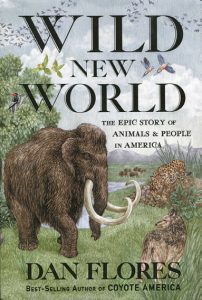
The inclusion of the word “epic” in a title is often hyperbole, but given that Dan Flores’ Wild New World: The Epic Story of Animals and People in America (W.W. Norton, $30) covers 66 million years of biological drama on a continent that many think of as young, the word more than earns its place. Flores sets himself up for a seemingly impossible task — covering so many Cenozoic, prehistoric, historic, and modern events between the covers of one book — but with lively prose, compelling science, and passionate storytelling, he delivers.
The book moves through the millennia with a biologist’s eye and a novelist’s voice. Flores brings a compassionate focus to the creatures that filled this continent, at times in abundance and at others on the brink of extinction. When it comes to the creature that, as he quotes Hamlet, is “the paragon of animals,” Flores gives us the story of human existence in America from the earliest times (“Clovisia the Beautiful”), through the development of Indigenous cultures with their symbiotic, spiritually based connection to wild animals, to the jarring influx of Europeans with a decidedly hierarchic, market-based connection to them.
Throughout the book, Flores repudiates many commonly held beliefs of the American story. Rather than Europeans arriving to find an untrammeled wilderness, with a great plentitude of herds and flocks, he instead writes how the earliest to make contact found a world of communities, trade networks, and agricultural development. It was only after the devastating effects of new diseases brought by these first Europeans that later colonizers found a continent of wildlife in vast numbers that boggle the mind. These latecomers thought they had found a new Eden when, in reality, they had stumbled upon the resulting boom of animal populations following the mass pandemics that removed significant numbers of the hunters and ecosystem alterers that had formerly held these populations in check.
Flores finally considers “the mammoth in the room,” climate change, and its daunting challenges for our future, as well as the future of American wildlife. Despite the well-cataloged bleakness, Flores notes, “anguish and mourning won’t get us very far in this present and future.” Instead, he details how species adaptation, public lands, and the ability of the latest incarnation of humans relearning our kinship with our furred and feathered co-inhabitants of this world, offers a path to hope.
OF NOTE:
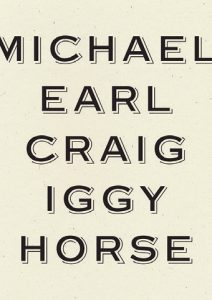
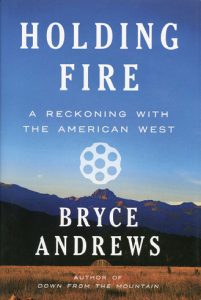
Bryce Andrews finds double meaning in the title of his new memoir, Holding Fire: A Reckoning with the American West (Mariner Books, $28.99). In the first, he deeply considers the role of guns in the founding of the Western states and questions how to hold his fire regarding his place in this lineage. In the second, he holds fire in forging the source of his questioning — the .357 magnum revolver handed down from his grandfather and, by extension, the generations of European colonizers who used similar weapons to take these lands by force — into a life-affirming tool for planting trees. He is honest about the contradictions involved: The gun is a beautifully crafted, elegant, and efficient machine. Yet, the gun is designed for the sole purpose of taking life. The legacy of the West is one of resilience, hard work, and living close to the land. But the legacy of the West is also one of genocide and environmental barbarism. Ultimately, the book embraces the inescapable dilemma and chooses a future of restoration and healing. Andrews finds that destruction by fire can lead to the construction of both inner and outer peace.
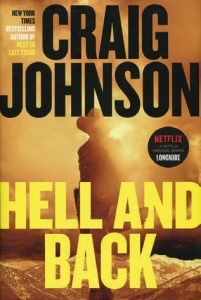
Sheriff Walt Longmire is way out of his element in Craig Johnson’s latest mystery, Hell and Back (Viking, $28). After waking up in the middle of a street covered in snow, with no memory of who or where he is, the mystery-solving lawman finds himself in an otherworld of the dead — villains and victims in Montana’s dark past of Native American boarding schools — where he must fight to save the souls of the murdered or lose his own in the attempt. In trying to make sense of his situation, Longmire is told, “All haunting is regret.” Johnson has given us yet another book that will indeed haunt us, but the only regret would be not reading it.
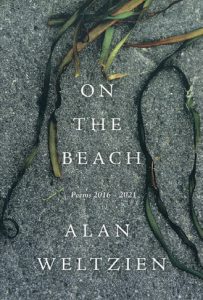
Alan Weltzien casts his nets deep and wide in his latest collection, On the Beach: Poems 2016 – 2021 (Cirque Press, $15), and comes back with a rich harvest of poetry to savor. Arranged into five loosely thematic sections, the included works constitute a substantial gathering of ruminations on the fate of our planet and its wild spaces; the joys and sorrows of family, friendships, and life experience; and the challenges of navigating our nation’s political and economic shark- infested waters. We may start this book merely standing on its beach, but page after page, we are drawn into the depths.
Marc Beaudin is a poet, theater artist, and bookseller based in Livingston, Montana. He has contributed to numerous publications, written two books — Life List: Poems and Vagabond Song: Neo-Haibun from the Peregrine Journals — and his work has been included in anthologies dedicated to environmental and social justice.



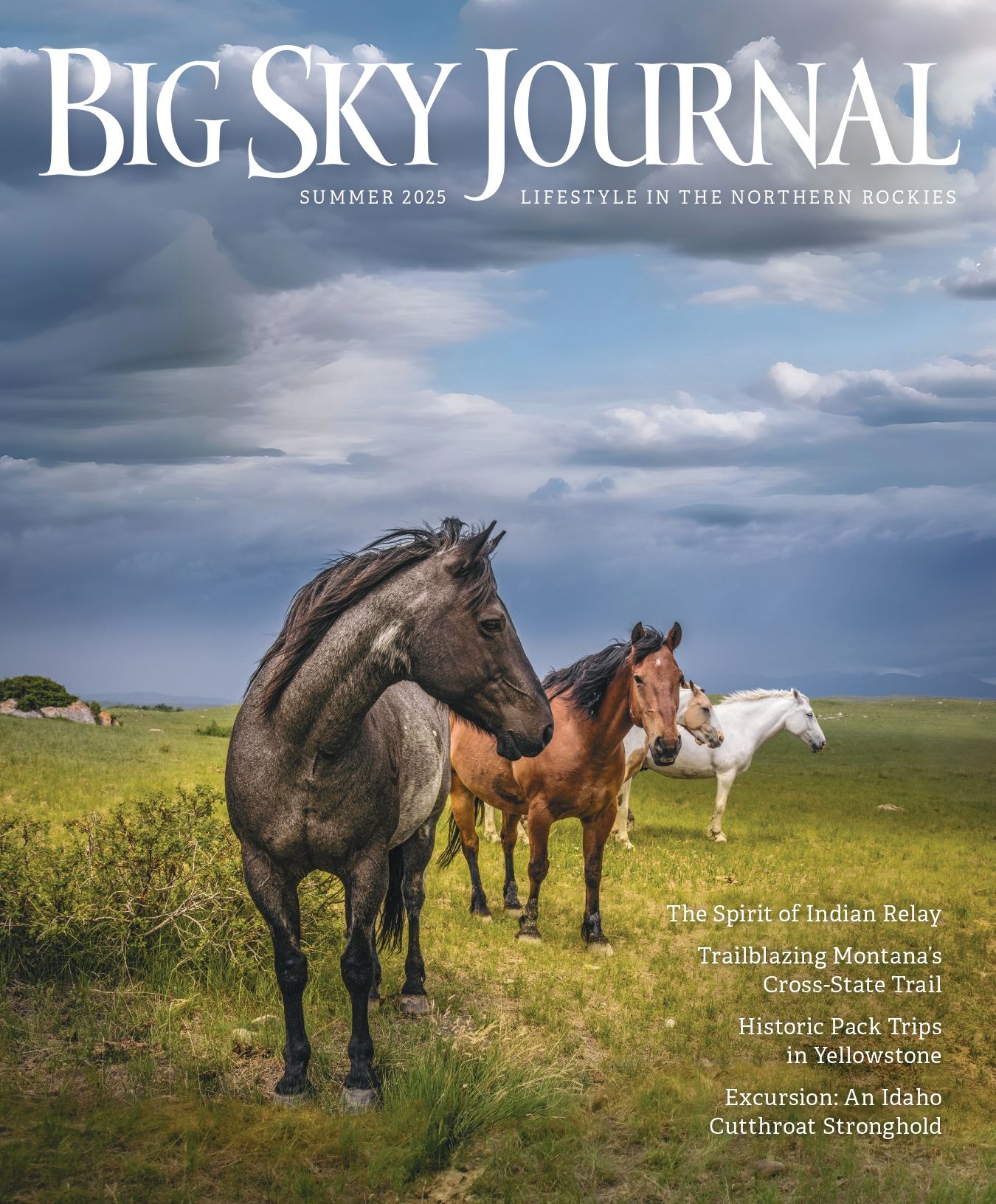
No Comments